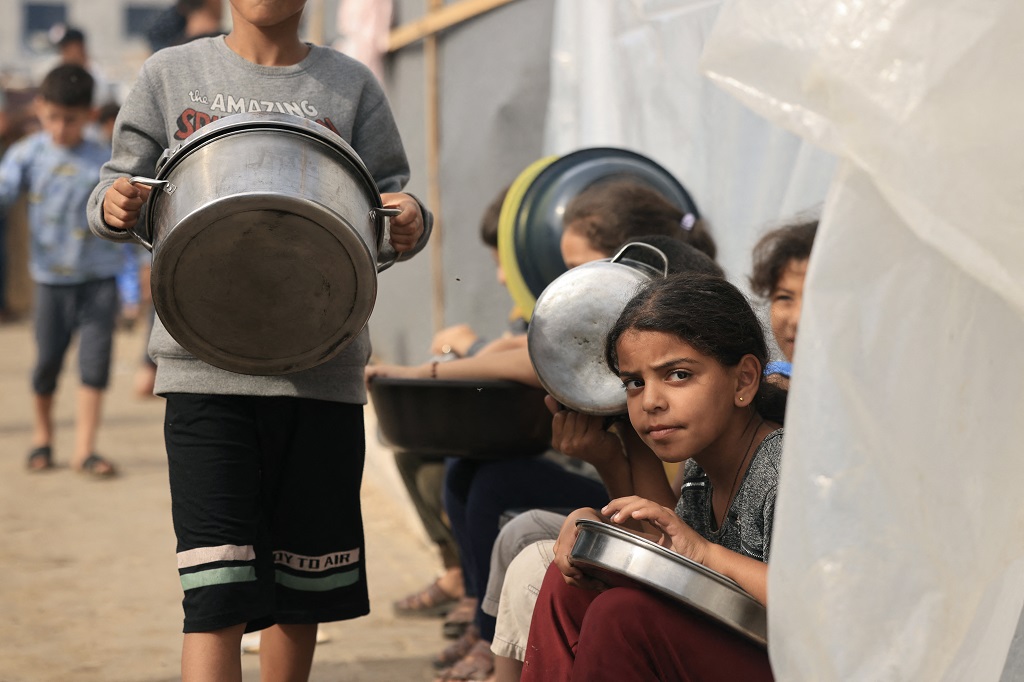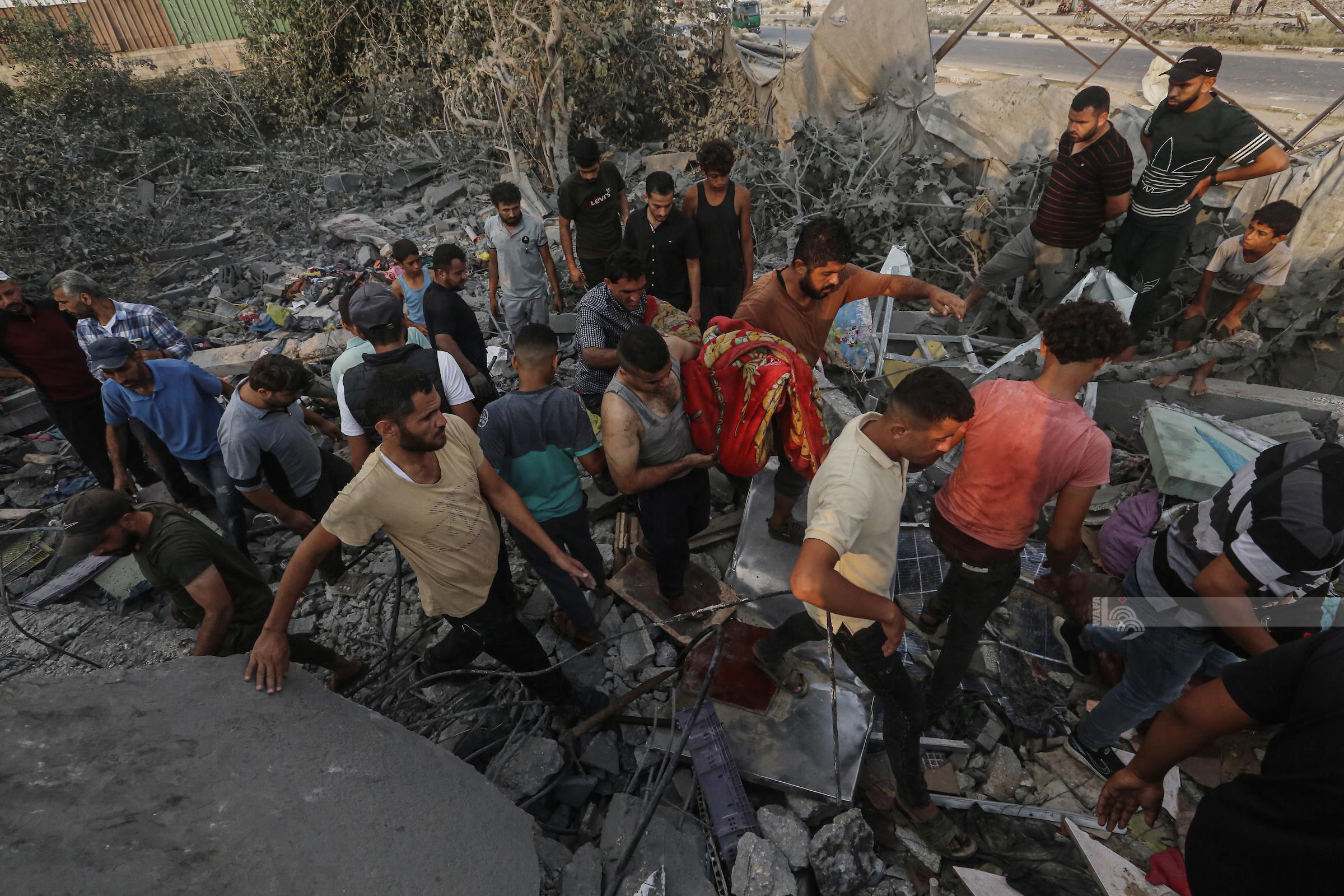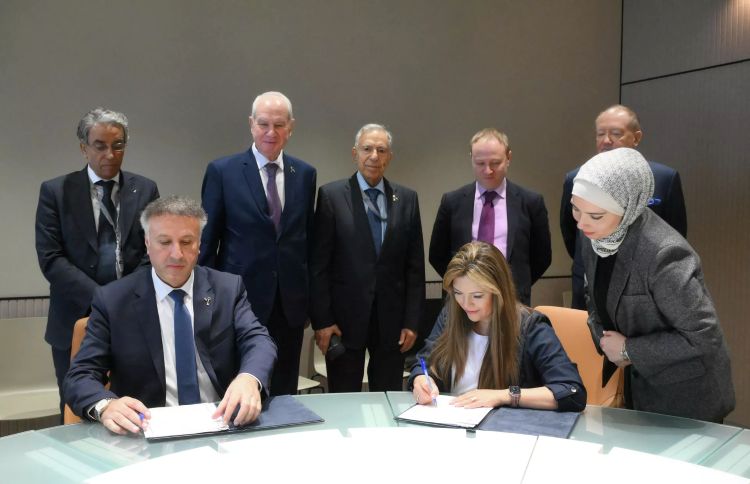ROME, March 27, 2025 (WAFA) – The World Food Programme (WFP) warned today that thousands of Palestinians in Gaza are facing the renewed threat of acute hunger and malnutrition due to dwindling food supplies amid Israel's ongoing closure of border crossings for humanitarian aid. The closures are part of Israel's policy of siege and blockade, which constitute a form of collective punishment against the people of Gaza.
The WFP statement pointed out that the escalation of the Israeli onslaught in Gaza is severely hindering food aid operations and endangering the lives of humanitarian workers in the region. As the war intensifies, the ongoing blockade has further exacerbated the already dire humanitarian situation.
Since March 2, 2025, Israel has closed the crossings to Gaza, preventing the entry of vital humanitarian, medical, and food supplies. This has caused an unprecedented deterioration in the humanitarian situation in the territory. The WFP confirmed that, for more than three weeks, it and its partners have been unable to deliver new food shipments to Gaza.
As of today, the WFP has approximately 5,700 tons of food stock remaining in Gaza, enough to support operations for only up to two weeks. However, the organization has stored over 85,000 tons of food outside the Gaza Strip, ready to be delivered once the crossings are reopened.
The WFP also noted that it requires 30,000 tons of food each month to meet the basic needs of approximately 1.1 million people in Gaza. Rising food prices have further compounded the crisis, with the cost of a 25kg sack of wheat flour soaring to $50, a 400% increase compared to prices before March 18. Additionally, cooking gas prices have surged by 300% compared to February.
The WFP urged all parties to prioritize the needs of civilians, ensure the safety of humanitarian workers and UN staff, and allow the immediate entry of humanitarian aid into Gaza. The agency also emphasized the urgent need for $265 million in funding over the next six months to support life-saving operations for 1.5 million people in Gaza and the West Bank.
Earlier today, the Israeli Supreme Court rejected petitions calling for the delivery of humanitarian aid to Gaza, further exacerbating the already critical situation. This decision has drawn sharp criticism from observers, who argue that it provides cover for the ongoing practices of collective punishment and genocide against the Palestinian people in Gaza, including the use of hunger as a weapon of war.
M.N












